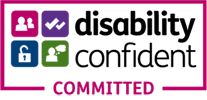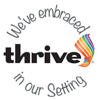Some examples of thinking and learning activities that take place within this phase.
- · Number activities counting, writing, recognising numbers through age appropriate games and play e.g. counting dice and moving counters for snakes and ladders, Bingo
- · ICT including mathematical games e.g. Top Marks, iPads, e-mails, Laptops, cameras, remote control toys
- · Problem-solving activities e.g. matching activities, jigsaw puzzles, building with a range of materials, shape sorting
- · Attention Autism stages 1-4
- · Outdoor Provision - Playground, Forest School, Bike track, Allotment areas, outdoor role play e.g. mud kitchen
- · Play - developed into a wider variety of functional and meaningful areas e.g. a cafe with real menu, coins, till
- · Shape, space and measure e.g. filling and emptying containers, measuring, recognising shapes
- · Real life problem-solving e.g. organising equipment for specific sessions
- · Using a range of tools and equipment safely and effectively e.g. scissors
- · Science based investigation and learning including discussions e.g. exploring change of materials during HE sessions, Science week!
- · Access to HE room for real life functional skill sessions, measuring using cups, using different appliances and finding equipment.
- · Work experience and Enterprise projects
- · Functional skills– recognising and using coins and notes in role play and real life situations, where appropriate learning to tell the time, daily routines and activities, sequencing their day
- · Exploration and Investigation e.g. enterprise events, skills builder events
|




